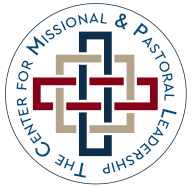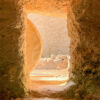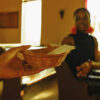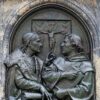CMPL Newsletter
March 11, 2025
Biblical
Biblical. Reformational. Missional. Affordable. Global. These are the five key themes around which we organized the Center for Missional and Pastoral Leadership. What do we mean by “biblical”? This fundamental theme is the root of everything in our programs. Without the written Word of God, which testifies to the Gospel of Jesus Christ and reveals God’s work and will, there would be no CMPL. Jesus prays to his Father in John 17: “Sanctify them in the truth; your word is truth.” This word is not only true, it accomplishes God’s work: “so shall my word be that goes out from my mouth; it shall not return to me empty, but it shall accomplish that which I purpose and shall succeed in the thing for which I sent it” (Isaiah 55:10-11). The most important work of the Word of God is to bring about salvation in those who hear it: “The sacred writings are able to instruct you for salvation through faith in Christ Jesus. All scripture is inspired by God and is useful for teaching, for reproof, for correction, and for training in righteousness, so that the person of God may be proficient, equipped for every good work” (2 Timothy 3:16-17). God accomplishes his mission through his word; through this word, taught, preached, and lived by the church, the Kingdom of God grows.
The written Word of God is the touchstone for our lives, our faith, and our teaching. It not only reveals God’s will, it also powerful to bring about God’s new creation. Luther scholars Robert Kolb and Charles Arand introduce Luther’s theology with this focus:
Luther’s reminder that God calls Christians in the midst of a sinful world to turn from their mistakes, failures, and disobedience each day of their lives reminds theologians of their need to return to Scripture continually to check out whether they are faithfully reproducing God’s message. This is true not only because students of God’s Word can make false formulations but also because Satan’s deceptions take so many forms, and God’s gift of humanity has so many facets. In different situations and in confrontation with various forms of evil, God’s message for a fallen world takes on new and different expressions. The unchangeable truths of Scripture must be proclaimed to specific human beings in their specific environments as the gospel addresses their realities and brings its power to change those realties through forgiveness and the promise of new life in Christ. God’s Word not only describes reality but also creates it. (Kolb & Arand, The Genius of Luther’s Theology, 8)
All the students in the CMPL programs take the courses in the “Biblical Theology” track. These include core courses in biblical interpretation, biblical theology, and the core books of the Scriptures, such as the gospels, Pentateuch, Pauline epistles, and prophets. Students also study Greek and Hebrew as part of the program, so that with tools they can read the Scriptures in their original languages. But they will also encounter the Scriptures in all courses in the program. It is the foundation and basis for the work of teachers, missionaries, pastors, and servants of the Word. Courses like Introduction to Pastoral Ministry and Pastoral Leadership help students be shaped by this Word as servant leaders in their congregations. The preaching and education courses, naturally, will help students bring this Word of God effectively to their communities. Even this historical theology courses will help students, as one of the program goals of the Institute for Lutheran Theology states, “Articulate a theology faithful to the Bible and the church's historical struggle to speak the gospel.” The Scriptures will be encountered by students in every course.
But the study of Scripture is not only an academic pursuit. Students will be nurtured in the Word in their home congregations as they worship, hear, and teach the Scriptures. Chapel opportunities are offered to students, led by faculty. And in the “Formation Path” of CMPL, students will read the Scriptures and pray together with their fellow students and mentors.
We can never have too much Word of God! Luther himself encouraged daily and continual contact with the Scriptures:
“You should diligently learn the Word of God and by no means imagine that you know it. Let him who is able to read take a psalm in the morning, or some other chapter of Scripture, and study it for a while. This is what I do. When I get up in the morning, I pray and recite the Ten Commandments, the Creed, and the Lord’s Prayer with the children, adding any one of the psalms. I do this only to keep myself well acquainted with these matters, and I do not want to let the mildew of the notion grow that I know them well enough. The devil is a greater rascal than you think he is. You do as yet not know what sort of fellow he is and what a desperate rogue you are. His definite design is to get you tired of the Word and in this way to draw you away from it. This is his aim.” (WA 32, 64f.).
| Thank you for joining the weekly newsletter from The Center for Missional and Pastoral Formation! |
| Our goal is to support congregations and leaders through outstanding theological education, with an emphasis on the Bible, our Reformation heritage, God’s mission, our global context, all delivered in an affordable way. |
| Through our partnership at the Institute of Lutheran Theology, we deliver online theological education with some of the best Lutheran teachers and scholars. This newsletter will update you on the program, courses being offered, introduce you to the faculty, and share resources. We will also share prayer opportunities and how to connect to CMPL and ILT as a full-time or part-time student. Our prayer is that we may all be “children of God without blemish in the midst of a crooked and perverse generation, in which you shine like stars in the world, holding forth the word of life” (Philippians 2:15-16).
We look forward to partnering with you in this work of God. |
Rev. Dr. Jeffrey Kloha
Jeffrey Kloha is the Dean of the Center for Missional and Pastoral Leadership. He previously served as Chief Curatorial Officer of the Museum of the Bible in Washington D.C. (2017-2024). He was responsible for the overall artifact collection, exhibitions, educational programs, and research projects offered by the museum. Prior to then he was Provost and Professor of Exegetical Theology (New Testament) at Concordia Seminary, St. Louis (1999-2017). He served as Associate Pastor of Gethsemane Lutheran Church, Lakewood, OH, and currently also serves as Associate Pastor at Our Savior Lutheran Church, Arlington, VA. Kloha has contributed to 31 scholarly published books and articles as well as supervising 13 student theses and publications.







